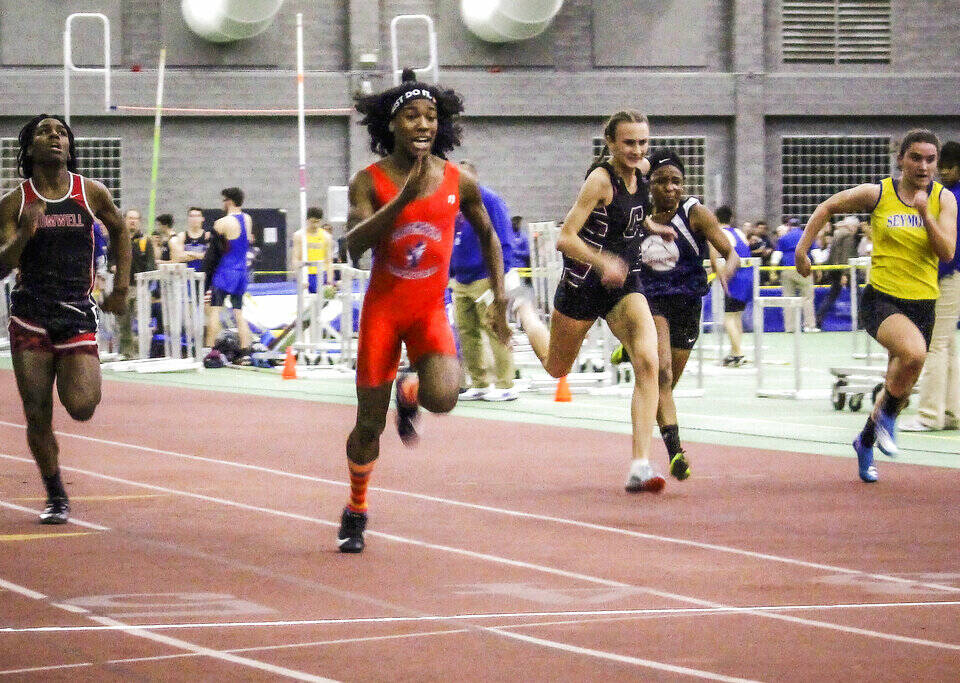In February of 2020, then-high school track athletes Selina Soule, Chelsea Mitchell, and Alanna Smith filed a lawsuit to object to transgender athletes competing against them in female athletics. The young women had been beaten in races by the trans competitors, and the original lawsuit claimed two transgender athletes won 15 women’s state championship titles and “have taken more than 85 opportunities to participate in higher level competitions from female track athletes in the 2017, 2018, and 2019 seasons alone.”
Mitchell, Smith, and their attorney, Kristen Waggoner, president and CEO of Alliance Defending Freedom, first joined The Megyn Kelly Show in May 2021 to discuss the case. At that point, a U.S. district court had dismissed their lawsuit a month earlier, claiming that, since the plaintiffs and transgender athletes had graduated high school, their case was moot.
Three years later, the girls’ case is being given a second chance. On Wednesday’s show, Mitchell, Smith, and Waggoner joined Megyn to discuss the update and why they are refusing to back down for the sake of female athletes everywhere.
The History of Trans Athletes in Connecticut
Beginning in the 2017 track season, two biological males who identify as female – Andraya Yearwood and Terry Miller – were permitted to compete in girls’ athletic competitions due to the policies of the Connecticut Interscholastic Athletic Conference (CIAC).
Since the 2013-2014 school year, the CIAC has permitted high school students to participate on gender-specific sports teams consistent with their gender identity. Yearwood reportedly entered high school identifying as a woman, while Miller came out as trans in tenth grade.
The plaintiffs competed against Yearwood and Miller in league and state competitions, but they all went to different high schools. As Mitchell explained to Megyn, Miller raced on the boys’ team during the indoor season and switched to the girls’ team for the outdoor season. At that point, Miller was “blowing us girls out of the water,” she said. In one race, Miller won by over half a second, Yearwood placed second, and Mitchell and her fellow female athletes finished behind them.
Smith described the experience as frustrating. “I used to spend hours a day at track practice just to shave off, I mean, tenths of a second, hundredths of a second,” she shared. “Track is a sport where just a little bit of time off is huge, and it was just so frustrating to line up and just feel like I was racing for second place – even if I was trying my hardest, I knew that I wasn’t going to get the top spot.”
Mitchell ended up losing four girls’ state championships and two all-New England awards to trans competitors. Smith, who ran a second-place finish in the 200-meter at the New England Regional Championships, dropped to third.
The Plaintiffs’ Case
The plaintiffs filed their lawsuit against the CIAC and several boards of education. It argues athletic opportunities had been taken away from biological female athletes and that the 2013 CIAC policy was discriminatory because it led to the displacement of biological women in competitive events.
As Waggoner explained, they believe the CIAC policy was an invalid interpretation of Title IX. “Title IX was intended… to ensure that both sexes… have equal opportunities, equal benefits and the regulations under that even say that includes girls should be able to compete based on their competitive abilities, based on their skill sets,” she said. “So that’s how Title IX has always applied, and it’s how I believe it will continue to apply when we eventually win this issue.”
The lawsuit seeks to grant a declaration that the defendants violated Title IX, get a correction of any and all records to give credit and titles to female athletes who would have received credit, and related monetary damages.
In regard to lost opportunities, Waggoner said it is unclear what kind of scholarships Mitchell and Smith could have received had they placed differently in some of these competitions. “We don’t know that,” she said. “What we do know is that those records are wrong, that it was unfairly administered in terms of the rules, and that they need to fix it.”
The Defendents’ Case
The defendants in the case are being represented by the American Civil Liberties Union (ACLU). The ACLU is arguing the biological girls still won in some races despite competing against trans athletes and, therefore, did not lose the opportunity to be champions.
Mitchell is not convinced that’s relevant. “There were four state championships where I should have been at the top of the podium, but instead that honor went to a male,” she said. “And in the races that I did win, those were also unfair races and there were girls that still lost opportunities in those races because of the biological males in that race.”
Ultimately, Mitchell and Smith believe the case is about more than the two of them. “We did win a few times, but it’s bigger than just me and her and other girls involved in the case,” Smith explained. “It’s about the girls that didn’t get to advance to other meets and didn’t get scholarships; it’s just about doing it for future generations of women and making sure that we don’t become sidelined in our own sport.”
You can check out Megyn’s full interview with the athletes by tuning in to episode 567 on YouTube, Apple Podcasts, or wherever you like to listen. And don’t forget that you can catch The Megyn Kelly Show live on SiriusXM’s Triumph (channel 111) weekdays from 12pm to 2pm ET.


